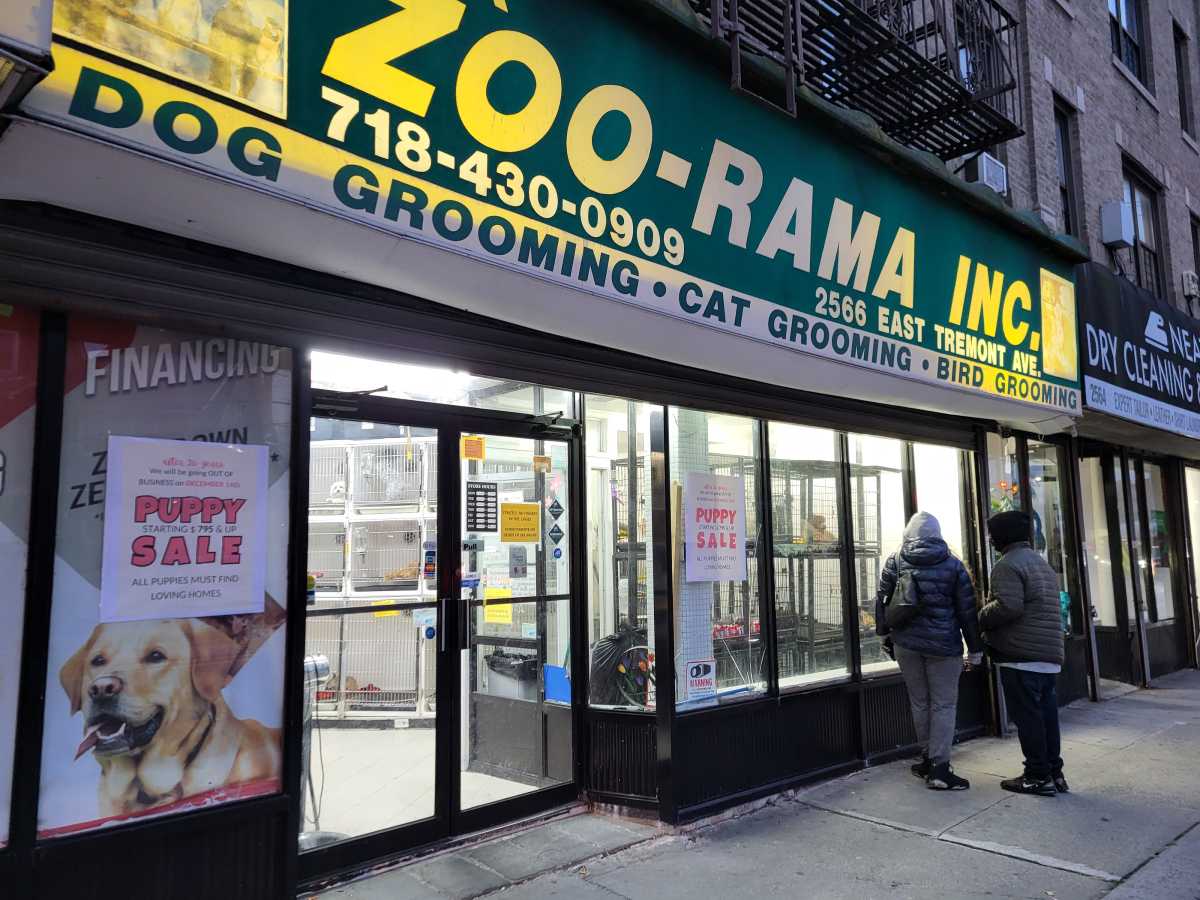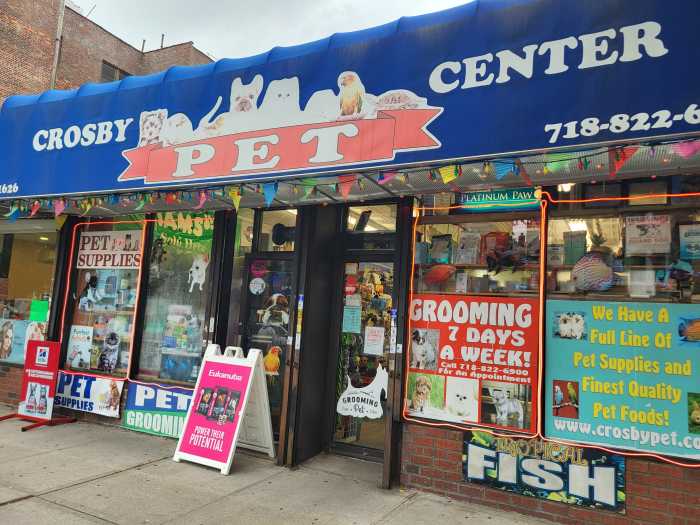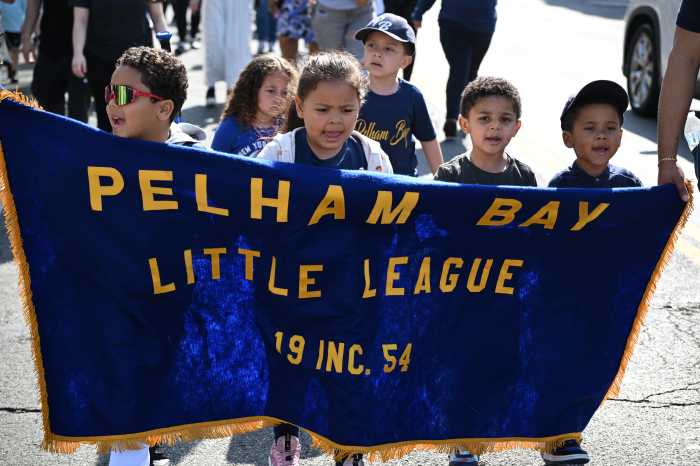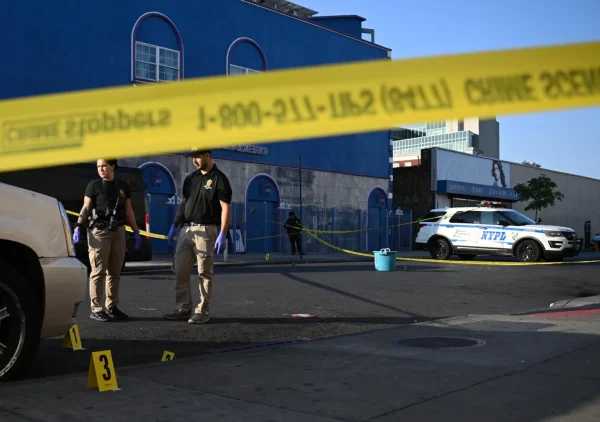A new state law banning the retail sale of pets has some longstanding Bronx shop owners worried that the law will damage their businesses while also failing to protect animal welfare.
State records show there are currently 25 licensed pet dealers throughout the five boroughs: six in the Bronx, five each in Brooklyn and Manhattan, eight in Queens and one on Staten Island.
The Puppy Mill Pipeline Act, signed by Gov. Hochul in 2022, takes effect Dec. 15 and prohibits retail pet shops from selling dogs, cats and rabbits. The legislation was co-sponsored by state Sen. Michael Gianaris, who represents parts of Queens including Astoria and Maspeth, and Assemblymember Linda B. Rosenthal, who represents Hells Kitchen and the Upper West Side. City legislation to reinforce the state law recently passed City Council by a margin of 40 votes to 5.
Bronx Republican Council Member Kristy Marmorato, who represents the East Bronx, was one of the few who voted against the retail pet sale ban. She expressed concern in a recent statement that the law “may inadvertently limit access to reputable breeders and reduce options for pet owners, potentially leading to unintended consequences for animal adoption rates.”
However, the American Society for the Prevention of Cruelty to Animals (ASPCA) celebrated the passage of the law in 2022 as a “big win” and said the ban will “end the flow of cruelly bred puppies into New York.”
In a statement reminding New Yorkers of the law, Attorney General Letitia James said that people looking for their next furry friend should adopt from local rescue agencies or go through a licensed breeder. “This pet sale ban will help put an end to the dangerous puppy mill to pet store pipeline that endangers pets and costs New Yorkers thousands of dollars in veterinary care.”
But some local pet store owners who say they’ve acted responsibly for years believe the law unfairly punishes them — and without their services, which are regulated by the city and state, they worry many New Yorkers will end up buying out of state, thereby decreasing local tax revenue, or perpetuating the underground market. They are also concerned about their own bottom line and the welfare of their employees.
Shutting down shop
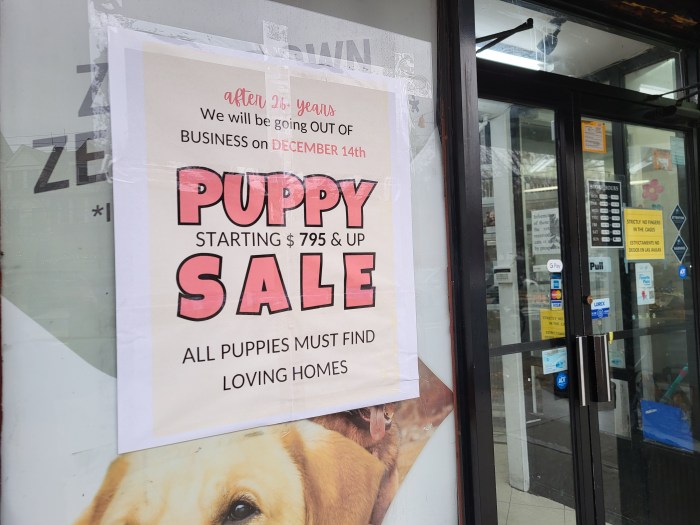
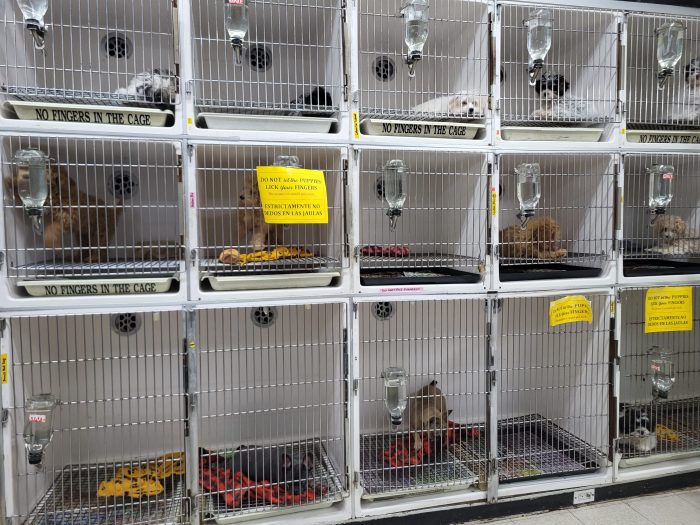
For some, the damage is already done. Zoo-Rama Pets on East Tremont Avenue, which opened in 1998, is slated to go out of business on Dec. 14 — the day before the ban takes effect.
During a Dec. 4 visit by the Bronx Times, signs on the window announced the store’s impending closure and promoted a puppy sale with prices starting at $795. Over the past couple of weeks, Zoo-Rama has worked quickly to sell its inventory ahead of the law’s implementation and has found new homes for about three quarters of its inventory, said a manager who requested not to be named in the story.
Although the store carries pet food and supplies and offers grooming services, the manager said 90% of profits come from the sale of animals, leaving a huge gap to fill when the ban takes effect.
“We are closing only because of this law,” he said. The Attorney General’s office declined to comment on the effects of the pet sale ban on local businesses.
The manager called the ban “very insane and unjust” and said Zoo-Rama plans to file for Chapter 13 bankruptcy protection while its six to eight workers file for unemployment. The store is also party to a newly-filed lawsuit against Gov. Kathy Hochul in the State Supreme Court of Suffolk County, aiming to stop the law.
The manager said his store is doing everything right, even exceeding state and city standards. All puppies are checked by three different veterinarians (including at least one that is USDA- certified) and come with NYC pet licenses and records of vaccinations and a fecal exam, which the manager said is not required. New owners also receive a thick packet of documents proving each animal’s breeder and health history.
“We did the right thing by providing quality puppies with all the paperwork,” the manager said. “I’m really sad about this.”

During the Bronx Times’ visit, a repeat customer came to the shop, having purchased a poodle puppy from Zoo-Rama two years ago. He showed off photos of the now-pampered pooch — with a baby’s pacifier in its mouth — and quickly chose another light brown poodle to take home on the spot.
The customer said he hadn’t heard about the ban on pet store sales and was disappointed to learn Zoo-Rama was closing.
“That is crazy,” he said. “I don’t feel like that is necessary.”
He said he had no problems with the puppy he got from Zoo-Rama two years ago — in contrast to the bad experience he had when he bought a dog elsewhere, without specifying whether it was a licensed store or not. He said he paid over $4,000 for that puppy, which turned out to have a respiratory infection. “I got got,” he said.
This time, he left the store with the new dog in his arms, plus a free bag that included some dog food, a bed, training pads, vitamin gel and toys, plus all the paperwork.

Zoo-Rama’s manager said the city’s pet stores are already subject to strong local and federal oversight, which prevents nearly all problems like the customer’s previous sick puppy. The city requires all pet shops to only use USDA-certified class A breeders with no violations within the past three years, according to the manager.
In addition, he said, local pet shops are licensed by the city, with each animal documented and tracked as they come in and are sold, and are regularly inspected by the Division of Animal Industry within the New York State Department of Agriculture and Market. The division did not respond to request for comment.
Records for those inspections are available to the public. A review of inspection records for Zoo-Rama Pets dating back to 2011 showed one critical violation from February 2020, which detailed four dogs that appeared to require medical care. For the 20 other inspections since 2011, the store received Satisfactory marks in all categories, including animal housing, feeding and watering, records and registrations, licenses, sanitation and veterinary care.
Without shops that have these kinds of checks in place, the manager said he feared New Yorkers will buy their pets from other states — generating tax revenue elsewhere — or from the underground market, like from the people he sees peddling puppies out of the trunks of cars.
The manager said that a few bad actors have raised unnecessary alarms for the whole retail pet industry. For one, James’ office recently secured a $300,000 settlement in a suit against a Long Island pet store, Shake A Paw, that sold unhealthy animals obtained from puppy mills.
The new law will not close any puppy mills, said the manager. Rather than punishing all pet stores, he said the state should focus on catching those who do wrong and could implement further regulation and safety measures by oversight agencies already in place.
The ban won’t stop people who treat animals as moneymaking machines, the manager said.
“There are car accidents. Because of that, you don’t close the roads,” he said. “You don’t ask manufacturers not to make cars anymore.”
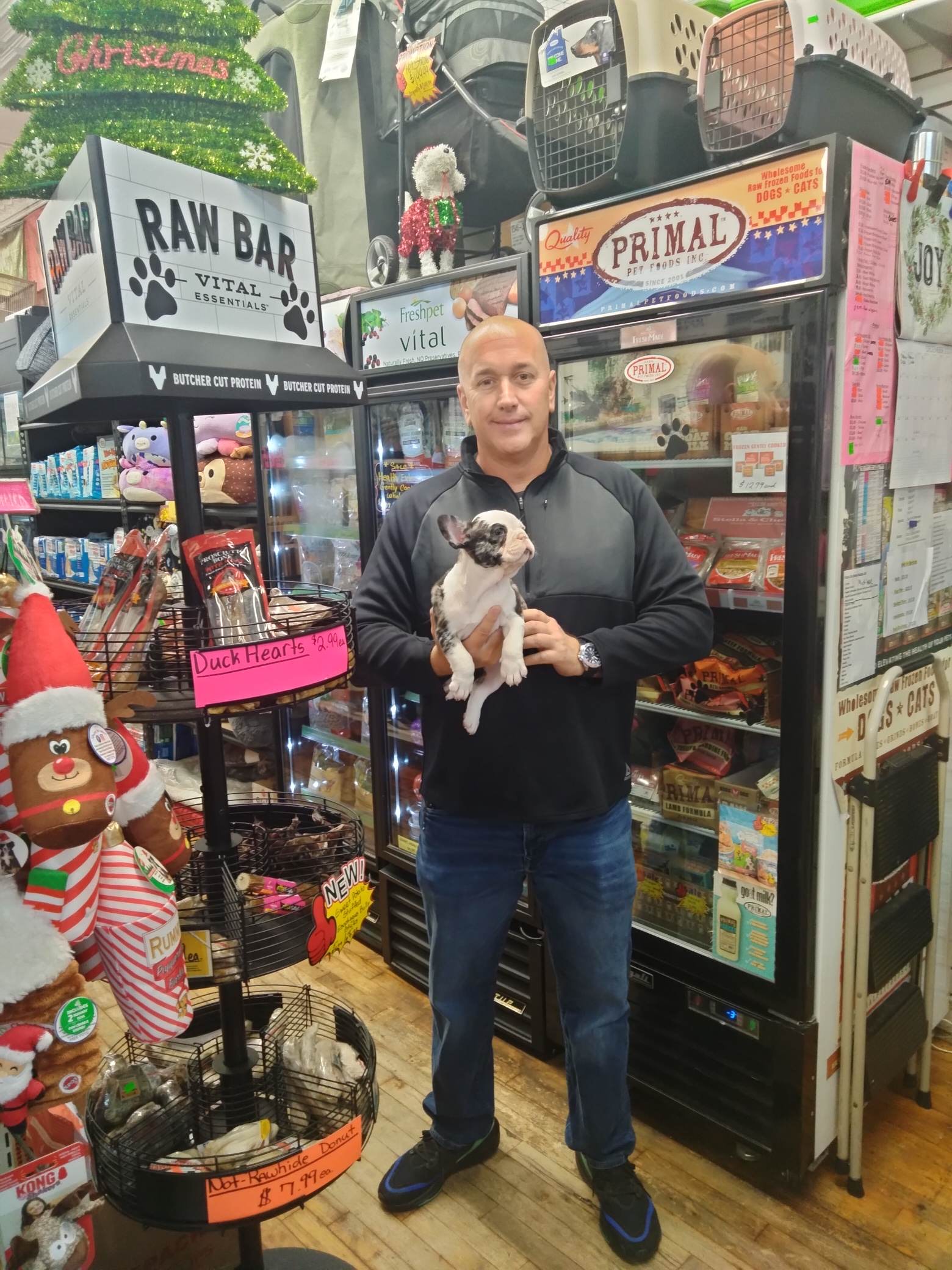
‘We’re animal lovers first’
James Earle, owner of Crosby Pet Center in the Pelham Bay neighborhood, agreed that the law could have disastrous consequences for his business and the industry. The store has operated for 25 years and received no violations from 2011 to 2024, according to state records of the past 17 visits. Records showed the store housed between three and 10 dogs per inspection.
Like at Zoo-Rama, Earle said all pets at Crosby Pet Center come from USDA-certified breeders, and the many loyal customers who leave the shop with a new puppy return repeatedly for food, treats, toys and grooming services. Without the ability to sell pets, he said he was uncertain how long the store would last.
To Earle, lawmakers’ stance against pet stores — which he feels has already unfairly damaged the industry’s reputation — also smacks of hypocrisy.
“How do they legalize marijuana and gambling, and you can’t sell a puppy in a pet store from a licensed breeder?” he said.
Earle said his family includes several veterinarians and vet techs. “We’re animal lovers first,” he said, while also acknowledging that bad pet stores do exist.
“If someone’s not doing something right, shame on them. Just like with everybody else in any profession,” he said. “But to take it out and shut all stores from selling pups that are from licensed breeders — it’s insane.”
In 2017, California became the first state to pass a law banning the retail sale of pets, and a recent investigation by the Los Angeles Times showed that problems with the underground pet market persist, with unscrupulous sellers who claim to be local breeders but actually sell dogs from midwest puppy mills, kept in terrible conditions.
Earle said despite the good intentions of lawmakers, the California legislation “opened up a whole underground network of people breeding dogs” without the kind of regulation his store is subjected to — and New York could go the same route.
“We’re a clean, beautiful neighborhood store,” Earle said. “This is not fair to people like us who care.”
Reach Emily Swanson at eswanson@schnepsmedia.com or (646) 717-0015. For more coverage, follow us on Twitter, Facebook and Instagram @bronxtimes

